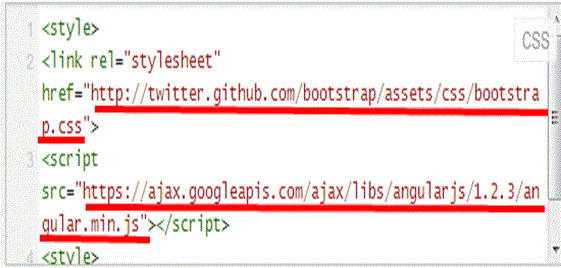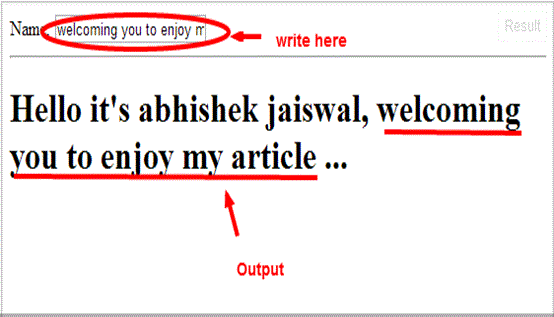Why ‘Angular JavaScript’ …?
As we know that HTML is
great for declaring STATIC DOCUMENTS, but it get fails when we try to use it for declaring DYNAMIC VIEWS in Web-applications. Angular JavaScript
allows you to extend HTML tags, features and vocabulary for your
applications (doesn’t matter native, web, static or dynamic), websites and portals.
The resulting environment that we get after using Angular JavaScript makes our project work-
- Extraordinarily Expressive
- Readable
- Flexible
- Quick to develop
- More Dynamic
- Extensibility
- Rich Vocabulary
Alternatives:
There is no best alternative of JavaScript but
other frameworks deal with HTML’s shortcomings by either subtracting away features of HTML, CSS
and/or JavaScript or by providing an imperative way for manipulating the Deterministic Object Model [DOM].
Neither of these is that much useful to fulfill the Dynamic views for HTML.
Extensibility:
In simple words we can define Angular JavaScript as ‘TOOLSET’ or‘TAG KIT’ that provides supports for building the dynamic framework that most suited to your application(native, web,
static or dynamic), website or portal development. It is fully extensible, flexible and can work well with other libraries easily.
Every feature can be modified or replaced to suit your unique development
workflow and features needs.
Simple Example:
There are 3 major parts in this example just similar like any other HTML coding, these parts consists:
[PROCEDURE]
JS code depends on you (for providing more extensibility in your code).
STEP1: HTML CODE
<div ng-app>
<div>
<label> Name: </label>
<input type=”text” ng-model=”ABC” placeholder=”Write anything”>
<hr>
<h1> Hello its Abhishek Jaiswal {{ABC}}… </h1>
<div>
<div>
STEP2: CSS Code
<style>
<link rel=”stylesheet” href=”http://twitter.github.com/bootstrap/assets/css/bookstrap.css”>
<script src=https://ajax.googleeapis.com/ajax/libs/angularjs/1.2.3/angular.min.js>
</script>
</style>
STEP3: JS Code
JS code depends on you (for providing more extensibility in your code).
<!—its on you-->
OUTPUT:
Whatever you will write in that box, will directly appear after Hello it’s Abhishek Jaiswal <!—content will be hereà …






No comments:
Post a Comment